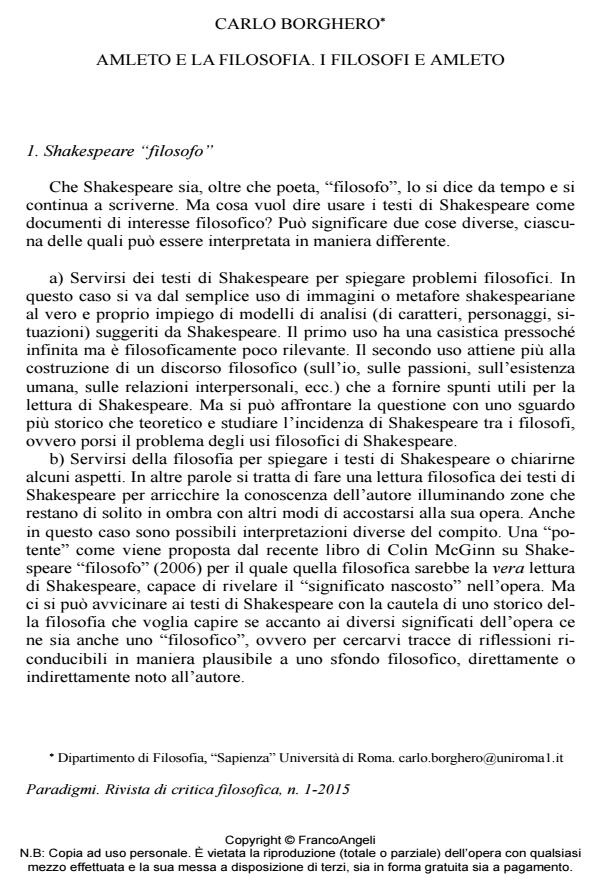Hamlet and Philosophy. Philosophers and Hamlet
Journal title PARADIGMI
Author/s Carlo Borghero
Publishing Year 2015 Issue 2015/1
Language Italian Pages 19 P. 55-73 File size 90 KB
DOI 10.3280/PARA2015-001005
DOI is like a bar code for intellectual property: to have more infomation
click here
Below, you can see the article first page
If you want to buy this article in PDF format, you can do it, following the instructions to buy download credits

FrancoAngeli is member of Publishers International Linking Association, Inc (PILA), a not-for-profit association which run the CrossRef service enabling links to and from online scholarly content.
To interpret Hamlet as a philosophically relevant text, for a historian of philosophy, can mean two things: 1) to use philosophical texts as possible sources for Hamlet in order to contribute to a better understanding of some aspects of Shakespeare’s play; 2) to study Hamlet as a text in which philosophers have found inputs for philosophical debate. Both paths have been vastly pursued in literary and philosophical studies, and the scientific literature on both of them is extensive. As regards the first aspect, this essay tackles it by focusing on the relationship between Shakespeare and Montaigne’s scepticism, which is certainly the philosophical approach that most pervades Hamlet. The second aspect is explored by making reference to Hegel’s and Nietzsche’s readings of Hamlet, which, unlike twentiethcentury analytic philosophy, did not emphasise the fragility of the self but highlighted the radical quality of Hamlet’s doubt, thus paving the way for a nihilistic interpretation of Shakespeare’s tragedy.
Keywords: Hamlet, Montaigne, Nihilism, Philosophy, Scepticism, Shakespeare.
Carlo Borghero, Amleto e la filosofia. i filosofi e Amleto in "PARADIGMI" 1/2015, pp 55-73, DOI: 10.3280/PARA2015-001005